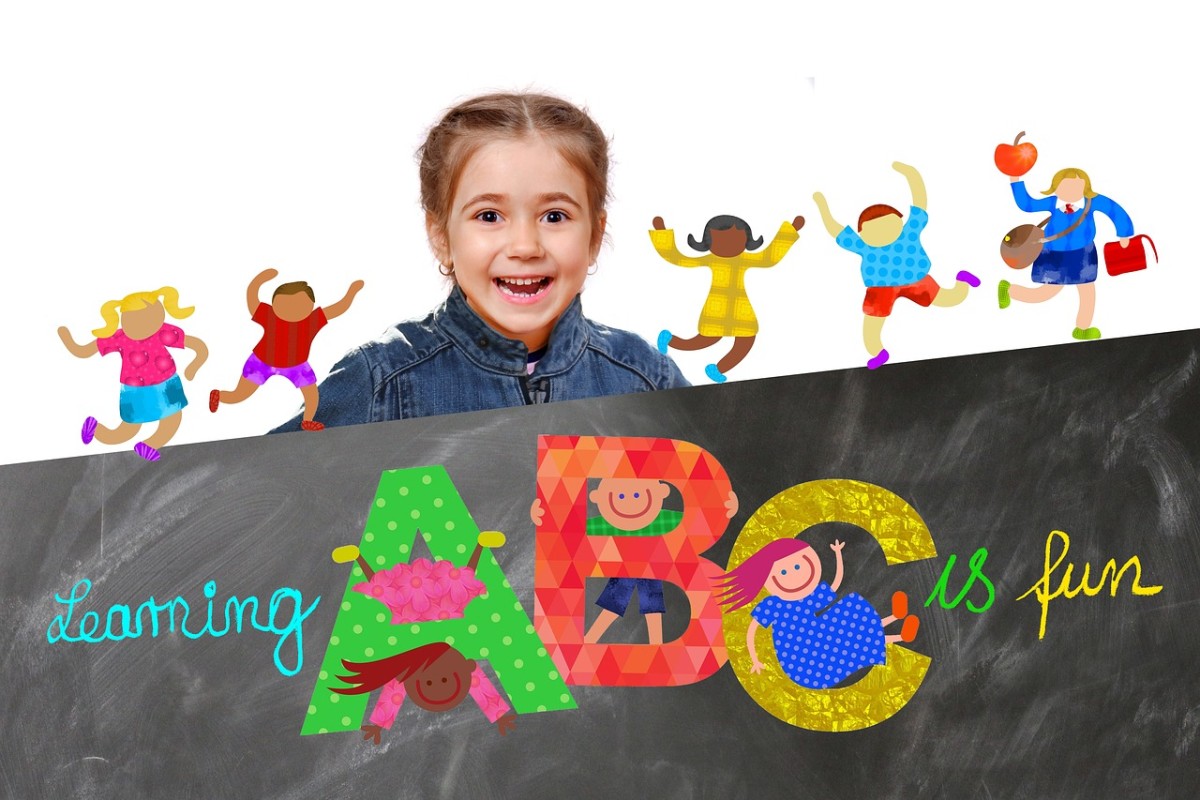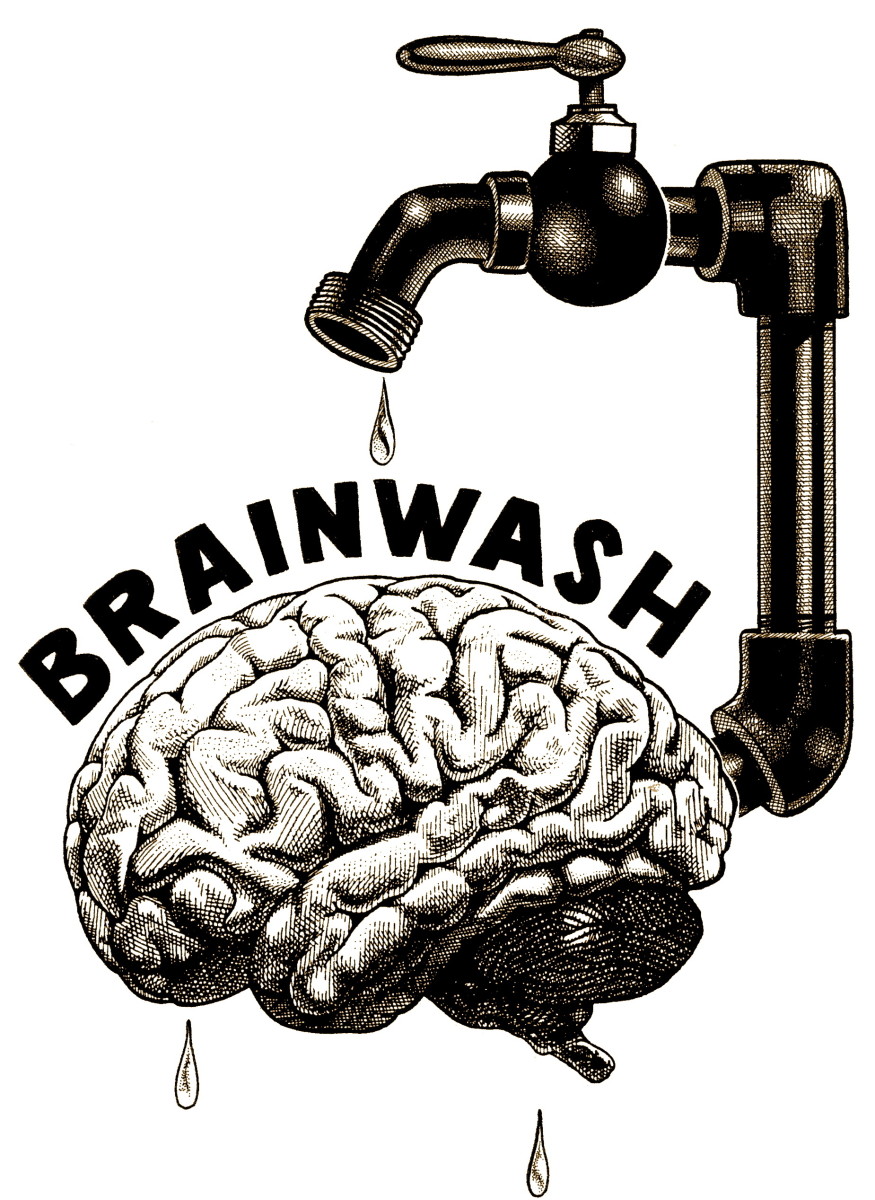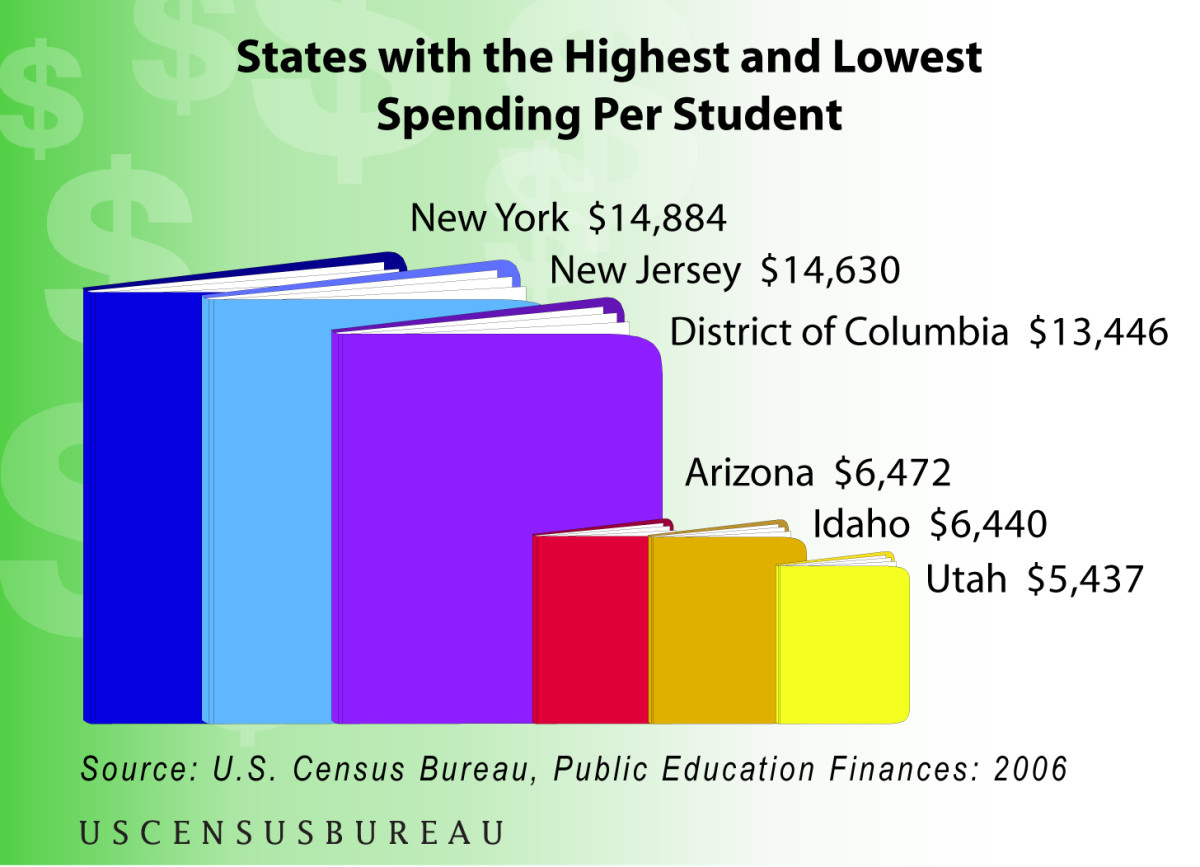Why Bother Getting An Education?

SON: “I don’t want to go to school anymore! All I do is waste time there! Hawaii has one of the worst school systems in the US! I ain’t learnin’ nothin’ there anyway, so why bother? I’m gonna sign myself out first thing tomorrow, and drop out!”
FATHER: (coolly) “Go ahead.”
SON (sputtering) “W – what did you just say?”
FATHER: “Go ahead and drop out, if you want. Since you’re 16 years old, you can legally do so. Plus, the Constitution does not guarantee anyone a right to an education.”
SON: “W – what do you mean the Constitution doesn’t guarantee it???”
FATHER: “It’s true an amendment was passed in 1924 restricting child labor for people under age 18. Because of this, plus some other rulings, you are required to attend school until you are 16 years old. A few others have since been attempted in the effort to provide equal and adequate education for everyone, but none have been successful. So, if you want to leave school, you’re free to do so. However, I’d like to point something else out to you. Do you know what an emancipated minor is?”
SON: Yeah. That means I don’t have to be 18 to get my own place and live however I want. But to do that, I’d probably have to – uh – (mumbling) knock up my girlfriend first…”
FATHER: “You don’t have to be a parent. I’ll gladly sign your papers.”
SON: (suspiciously) “What are you getting at?”
FATHER: “What would you do if you had my blessing to become an emancipated minor? You’d have no school, could get your own place, and do whatever you want all day. What would you do with your new freedom?”
SON: (brightening) “I’d rent myself a penthouse suite apartment, and invite all my friends over for parties every night!”
FATHER: “How would you pay the rent for this apartment?”
SON: “I’d – uh – I don’t know – get a job…”
FATHER: “What kind of job? Doing what? Have you checked out the rents in this area? As you see, we don’t live in a penthouse suite, so there’s no way I could help you out financially. What job could pay that much rent and leave you enough to live on?”
SON: (goes online to research rents, then becomes really embarrassed) “As I said before, I ain’t learnin’ nothin’ at that awful high school. Obviously, it ain’t preparin’ me for life.”
FATHER: “And as I said before, the Constitution does not guarantee anyone a right to education. But you have to face life anyway, whether you’re prepared or not. So what are you going to do about it?”
Current Social Issues Regarding Education
The United States ranks 14th in the world regarding quality of education. Common complaints are: 1) the teachers aren’t doing their jobs; they’re just putting in time for their paychecks, and many aren’t even qualified to instruct; 2) the teachers are so overwhelmed managing a classroom full of brats and parenting children who come to school neglected that they don’t have time and energy left over to teach; 3) the Core Standards aren’t adequate for preparing students to face life; 4) the Core Standards don’t take individual cases, such as school district poverty rates, into account; 5) the No Child Left Behind Act has slowed the progress of all the other students to that of the most lackadaisical learner; and 6) not enough tax money is being spent on education. Obviously, in America complaints are more numerous than solutions.
What is the secret to success of the 13 countries that rank higher in education than the United States? Could it be that, unlike the US, all of them have a constitutional, or at least statutory, guarantee of an adequate education for all its citizens? (It may come as a surprise to some, but as indicated in the above conversation between Father and Son, nothing in the US Constitution guarantees a right to free and adequate education!) Or could it be something else – like students attending school 7 days a week, such as they do in South Korea, which ranks #1 in the world, or the highly competitive structure of Japan, which ranks 2nd? Even then, would emulating them solve America’s problems? After all, in both countries, suicide is the leading cause of death for people under age 30.
Countries the world over recognize the value of a good education. In an ideal society, there would be no poverty; everyone would be employed in meaningful work, able to meet all their needs and most of their wants; the government would properly manage issues such as pollution, traffic congestion, and crime; and all could live happily ever after. The problem lies in how to provide this education. How can poor countries, or poor sectors of wealthy countries, fund it? And what sort of learning constitutes a proper education? In America, 60% of college graduates don’t work in their chosen field, and some can’t even get a job. So even a college degree, the envy of most people in the world, is no guarantee of success.
Historical Efforts to Address Rights to an Education
Written forms of language date as far back as 3500 BCE. Various civilizations throughout the world – Egypt, India, Greece, Rome, the Middle Eastern Countries, and China each developed their particular script. At first, only scribes were taught to read and write; for the vast majority of people, education consisted of learning to live in society. Boys acquired skills in hunting and farming through working side by side with their fathers, or perhaps learned a trade by being apprenticed out to someone already practicing it. Some joined the military, and specialized in war. Girls learned from their mothers how to run a home; some in addition were taught ways to cure common illnesses through herbs, and some became midwives. Compulsory education, which means everyone being required to have basic societal knowledge, actually is nothing new.
Gradually, wealthy classes were able to learn to read and write, acquiring knowledge that enabled them to live a better quality of lifestyle. This caused a huge disparity in those societies, with only a few elite as compared to huge masses of poor peasants having no chance of escaping their plight. With trade of goods becoming more common between countries hundreds, even thousands of miles apart, forms of written communication and basic arithmetic / accounting skills became more important, so this knowledge had to be available to the common man. Eventually a “middle class” was created, mostly comprising of merchants and people who practiced a specific trade.
The first country known to pass a law requiring all children formally attend school was the Aztec Triple Alliance, which ruled from 1428 to 1521 (located in what is now Central Mexico). In the 16th century, the Protestant Reformation established compulsory education for boys, eventually spreading throughout Europe. In the US, Separatist Congregationalists ruled in 1620 that parents must teach their children to read and write. The first universal public education law in the US was passed in Massachusetts in 1851; even in 1647, it required every town with 50 families or larger to establish a grammar school. Parents who did not send their children to school were fined, and even risked having them taken away and apprenticed to others. The universal public education law spread to additional states, with Mississippi being the last one to enact it in 1918.
Today, compulsory education laws are state-based instead of federal (which is why no constitution supports it). Most states require a child begin attending an accredited school by age 6, and continue until age 16. These laws were enacted to increase literacy and protect students from the ills and exploitation of child labor. Some states make exceptions for particular religious beliefs, like the Amish in Wisconsin, but for the most part they are enforced. The national high school graduation rate for 2016 is 83%.
Current Laws in the US that Address Rights to an Education
Today, laws protect the rights of children to obtain a high school education at schools accredited by the Department of Education. Not only that, but they have a right to be free from discrimination based on race, religion, gender, sexual orientation, citizenship, health condition, disability or family financial status. In 1912, school accreditation, a precursor to Common Core Standards, was begun in an effort to standardize what was being taught in all schools so that all students nationwide would be equally educated. Updates to Common Core Standards have been made as recently as 2008. In 2002, the No Child Left Behind Act was instituted for students who lagged behind the others; today, there is much debate whether or not to maintain it.
Proposed Laws / Legislation to Address Education in America
Currently, rulings are in the works defending students against bullying and harassment, especially if it is based on the aforementioned classifications, and if it significantly interferes with the child’s education. Budget cuts have interfered with art, music, and physical education classes; the Department of Education is looking for ways to restore these. Another important issue is the astronomical tuition rates of universities, forcing many students to assume student loan debt they may never be able to repay, especially if they don’t get good jobs upon graduation – or graduate at all.
National Standards that Govern Education in America
Common Core Standards are determined by state laws. However, all states at least follow these basics: four years of Language Arts (English), and at least 2 years of Mathematical Reasoning, Science, and Social Studies. This is what is covered in the General Education Development (GED) High School Equivalency Exam. Each state has additional requirements regarding electives and physical education.
Common Core Standards are assembled year – by – year from kindergarten through 8th grade. Then they are banded from grades 9 – 10, and 11 – 12.
Conflicts between USA and Other Countries Regarding Education Standards
Since the US ranks 14th in education, many of the countries ahead of it have far higher literacy rates. This makes the US less economically competitive globally. Eventually, it can lower our standard of living, causing us to lose our position as a major world power.
Seven countries in Europe offer a 4 year university degree with no tuition costs. Feeling trapped by escalating costs in the US, many Americans are going to these countries to obtain degrees. However, because educational standards vary from one country to another, plus the difficulties of functioning in a foreign language, obtaining a degree in another country is not so easy. Plus, the degree may not be recognized in the US, which means the graduate may not be able to get a job upon returning home. They may not be able to work in the foreign country either, because of an inability to obtain a work visa.
How Other Countries Address Education Standards
In South Korea, students attend school seven days a week. The role of a teacher is highly valued. Secondary school graduation rates rank 98%, and literacy rates among both boys and girls rank 99%. They have a strong vocational program, as well as greatly encouraging attending a university. Entering any university, especially one of the top 3 universities is extremely competitive, as is also the case in Japan.
Top ranking European countries use target settings, aiming for minimal low achievement rates in primary and secondary schools and at least 82% of high school and university graduates being fully employed. They also encourage working adults to engage in lifelong learning, continuing to take courses to keep up with trends and improve their knowledge and skills.
Teen pregnancy is a major factor in whether or not some students graduate from high school. America has one of the highest teen pregnancy rates in the developed world. South Korea and Japan frown greatly on teen pregnancy, with the girl often being disowned by her family; this is one big reason for low rates there. In Europe, comprehensive sex education is given to teens, leading to their low rates.
How I Would Address Education Standards
As a substitute teacher, I see first-hand what goes on in schools. I believe there are two main problems: 1) students are often not motivated to learn, so they goof off and don't put forth adequate effort, and 2) school curriculums are not properly geared towards teaching students how to become self - supporting, fully capable adults, which I'm convinced contributes to the students not taking school seriously. Thus, I will address the second issue first. I would require all high schools to offer courses such as auto mechanics or journeyman skills, so that every graduate could get a job to support themselves. Word processing, bookkeeping and spreadsheet skills would also be mandatory. I would do away with the law that students can choose to drop out at age 16; a high school diploma would be a legal requirement, except under the most extreme circumstances. A fully comprehensive sex education class would be offered in the 9th grade, complete with the students being responsible for a simulated baby. Another requirement would be a course on money management, teaching students to avoid debt except for large purchases such as a car or house. Home schooling would be allowed; however, the parents would be required to hold a teaching credential, and their students would be tested for proficiency once a year. If they did not pass, the parent would be required to place the child in school.
Though this would be mere paperwork, I would make free and adequate education a constitutional right - and personal responsibility. I would do away with No Child Left Behind; instead, tutoring would be made available for everyone who needed it, in all subjects. Those who couldn't cut it would be held back a grade. That would be shameful, but shame is a great motivator - plus the US can't really afford to have a bunch of people swelling the welfare rolls and draining tax funds. Welfare should be reserved for those in dire straits beyond their control, not lazy naive people who should have known better than to wind up in such a situation in to begin with.
Of course everyone would love tuition-free universities. Unfortunately, that would involve raising taxes far above what most Americans are willing to tolerate. A good compromise would be to lower tuition to what most people can afford, and provide full scholarships and grants for those who can't pay even that.
As for the first problem, I would provide lazy students with a reality check. Kids as young as middle school age would be given a summer job and told they were to be paid a certain wage, then they would be blatantly ripped off. They would get their full pay only after they figured out the mathematical mistake. High school students would be given summer jobs with pay commensurate with their grades and job skills. This could prove to be quite lucrative; when I lived in Silicon Valley, I read about a couple of high school juniors who got summer jobs as computer programmers, earning $16 an hour (this was in the mid - 1980s!).
Legal Problems that Could Arise with Laws I Would Change
Ghetto schools, where the dropout rate is 50% or greater, would have a really hard time implementing my proposed program. One reason why students drop out is because attending there is too dangerous. Those with criminal mentalities would have to be removed, possibly getting their education in a prison school which would have the same requirements; before being released from prison, they would have to obtain a high school degree, job proficiency, and prove willingness to live a life free of crime. Kids who attend ghetto schools where the criminal population is too large to accommodate all who need to go there could get vouchers to attend schools in better districts, but that is already being done, and multiple problems exist as a result.
Regarding sex education, a major battle is currently waging. Studies have shown keeping kids ignorant does not prevent teen pregnancy or the spread of sexually transmitted diseases, but many parents object to schools teaching this information, believing it would promote promiscuity.
Tax money would be needed to fund the summer job programs; where it would come from is a major issue.
There may be legal issues regarding the job program where kids get ripped off until they figure out the mathematical error.

SON: “Uh – I don’t know – uh – maybe I’m not ready to be an emancipated minor after all.”
FATHER: “This awful Hawaii high school you attend – does it offer any courses that could lead to well-paying jobs, like auto mechanics or robotics?”
SON: “Yeah, actually it does!”
FATHER: “Before you drop out, why don’t you take some of these courses so you could possibly afford your own place? It may not be a penthouse suite apartment, but have you checked out the price of rentals in this area?”
SON: (thinks for awhile) “You know what? I take back everything I said. I’m going to finish high school. Hawaii schools are truly great, after all. We have no problems with gangs or poisoned drinking water, and the teachers care about us. Sure our test scores are low, but we students can do something about that.”
FATHER: (puzzled) “Why the sudden change in plans?”
SON: “It occurred to me rents in Flint Michigan are a lot lower than here – but for good reason! We have it really great here in Hawaii! Even Waianae is paradise compared to some places on the Mainland! For that matter, I think I’ll even go to college!”
© 2016 Yoleen Lucas








